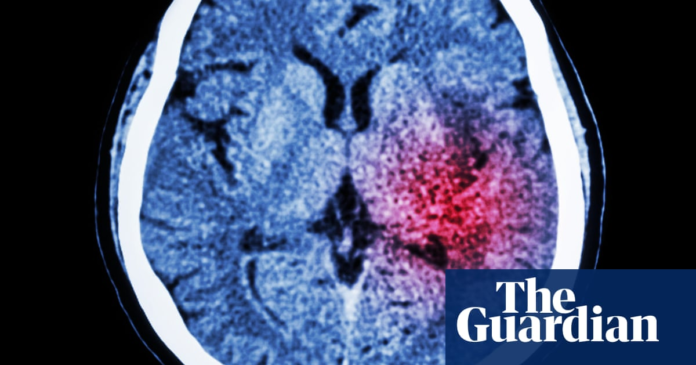Please bookmark for future updates
Tool uses machine learning to analyse medical data for red flags relating to undiagnosed atrial fibrillation
Thousands of strokes could be averted in the UK each year after doctors developed an algorithm that spots patients at risk by scanning millions of GP records.
The tool uses machine learning to scour medical data for red flags that could identify patients with undiagnosed atrial fibrillation (AF), a heart condition that significantly increases stroke risk.
About 1.6 million people in the UK have been diagnosed with AF. Doctors believe there could be thousands more who are unaware they are living with the condition because they have no symptoms.
If diagnosed and treated early, the condition can be managed and the stroke risk reduced.
The algorithm works out someone’s risk based on a number of factors including age, sex, ethnicity and whether or not they have other medical conditions such as heart failure, high blood pressure, diabetes, heart disease or chronic obstructive pulmonary disease (COPD).
Estimates suggest AF is a contributing factor in 20,000 strokes a year in the UK.
The algorithm was developed by doctors and scientists at Leeds teaching hospitals NHS trust and the University of Leeds, with funding from the British Heart Foundation (BHF).
They developed the tool using the anonymised electronic health records of 2.1 million people, training the algorithm to find warning signs flagging people who are at risk of or may already have AF. The tool was validated with records from a further 10 million people.
The NHS is trialling the tool in a study called Find-AF, funded by the BHF and Leeds Hospitals Charity. Experts hope the West Yorkshire study will pave the way for use of the algorithm across the UK.
Patients identified as being at high risk of AF are offered a handheld electrocardiography (ECG) machine to measure their heart rhythm twice a day for four weeks as well as any time they feel heart palpitations. If the ECG machine readings indicate that a patient has AF, their GP is informed and they can discuss treatment options.
A former army captain who has already benefited said he was “really grateful” his AF was spotted by the tool. John Pengelly, 74, of Apperley Bridge, Bradford, now takes a couple of pills a day to reduce his heightened risk of a potentially deadly stroke.
Chris Gale, a professor of cardiovascular medicine at the University of Leeds and honorary consultant cardiologist at Leeds teaching hospitals NHS trust, said: “All too often the first sign that someone is living with undiagnosed atrial fibrillation is a stroke. This can be devastating for patients and their families, changing their lives in an instant. It also has major cost implications for health and social care services – costs which could have been avoided if the condition were spotted and treated earlier.”
Dr Sonya Babu-Narayan, associate medical director at the BHF, said the algorithm offered “a real opportunity” to identify more people with AF who may benefit from treatment to reduce their stroke risk.
Sign up to First Edition
Our morning email breaks down the key stories of the day, telling you what’s happening and why it matters
after newsletter promotion
Dr Ramesh Nadarajah, of Leeds teaching hospitals NHS trust, said that if further tests of the tool were successful, it could become part of everyday clinical practice.
He said: “Ultimately, we hope that this approach will lead to an increase in the number of people diagnosed with AF at an early stage who get the treatment they need to reduce their risk of stroke.”
NHS England said on Saturday it had hit a milestone in stroke prevention. In the last year, 1 million patients with AF were prescribed blood thinners to help reduce their stroke risk.
Anticoagulant medication has helped prevent 9,000 strokes in England in the last five years, it said.
Helen Williams, NHS England’s cardiovascular disease prevention director, said: “By delivering anti-coagulation treatment to the vast majority of at-risk people with AF, we are protecting them from fatal or disabling strokes. This is fantastic news for thousands of people across the country.”
Create an account
Welcome! Register for an account
A password will be e-mailed to you.
Password recovery
Recover your password
A password will be e-mailed to you.
Tuesday, December 31, 2024



